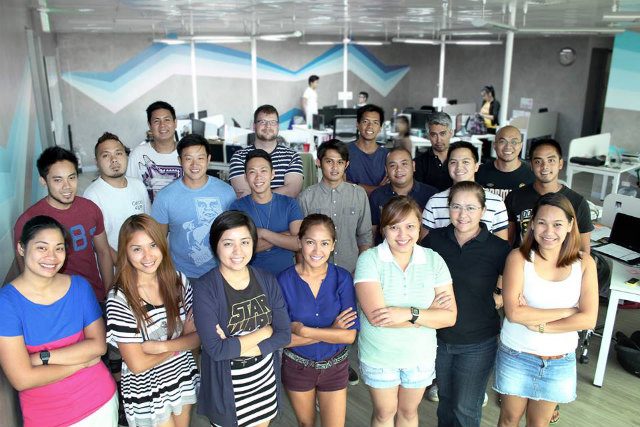SUMMARY
This is AI generated summarization, which may have errors. For context, always refer to the full article.
 The most striking sign of the Philippines’ economic promise is its skyline. Almost every day it seems, there are new condominiums, apartment buildings, and houses to dot the horizon. John Dang, the founder and CEO of ZipMatch, wants to change the way we find the right home amid all those possibilities.
The most striking sign of the Philippines’ economic promise is its skyline. Almost every day it seems, there are new condominiums, apartment buildings, and houses to dot the horizon. John Dang, the founder and CEO of ZipMatch, wants to change the way we find the right home amid all those possibilities.
Dang says ZipMatch is akin to “property matchmakers.” He explained, “For the customers looking for homes, we offer fast response, recommendations to the best properties that fit their needs, refer them to good real estate professionals, and follow up with them to make sure they’re being serviced the way someone deserves to be when making the largest investment of their lifetime.”
ZipMatch also helps real estate agents. Of the company’s benefit to them, he said, “For the professionals we offer them pre-qualified customers whose buying profile matches what they’re selling. We really are not just a technology or a property listing site, but a service.”
No matter how you classify ZipMatch, the company has undoubtedly been successful. They have raised funding from investors, built a solid team, and get more and more traction from both prospective home buyers and real estate professionals with each passing day.
Given his success, I thought it appropriate to ask Dang for his advice on building businesses that can scale into what he calls “hundred-million-dollar opportunities.” I collated his advice into 6 key points:
1. Focus on the problems that the Philippines is facing
To other entrepreneurs, Dang cautioned, “Don’t get caught up with these cool apps and technology that you see from Silicon Valley. You don’t need to copy the next Whatsapp for the Philippines. The US doesn’t face as many fundamental and infrastructural problems we do. They can build creative solutions on top of a sound economy and other technology that already exist in a mature market.”
To Dang, the Philippines is already ripe with opportunity at the most basic level. He said, “The market here has real problems that need to be fixed. I mean fundamental day-to-day business problems that impact everyday lives of Filipinos. Rather than creating the next singing, talking app where you can buy a bunch of fun stuff, focus on fixing problems you see every day.”
He recommended, “Look at problems in finance, transportation, education, taxes, shelter, food, family planning, bureaucracies and inefficiencies. Look at all the major gaps in business that affect our everyday lives that are necessary for survival and growth of this country first. These problems are hundred-million-dollar opportunities in my opinion and they are some of the hardest problems to solve. Address the challenging problems in this country first.”
2. Find co-founders with the right attitude
When I asked Dang how to find the best possible co-founders, I assumed that – as a technopreneur – he would suggest how to meet people with the right technical skills. For example, you should to go this conference to look for a developer, or you should recruit at this university for a user interface designer.
Instead, he put emphasis on partnering with co-founders who share the same attitude, as sheer determination will often get you through challenges where you may lack previous knowledge. Dang said, “I guess my advice is the most important aspect about your partner is attitude. If you share the same attitude and that attitude should be something along the lines of ‘we will do whatever it takes to succeed,’ everything becomes easier.”
He reflected, “Interestingly enough all my previous business ventures that failed didn’t happen because our business idea wasn’t good, it was because the attitudes of my partners didn’t align and we didn’t fully commit to the business.”

3. Don’t be afraid to disagree
As human beings, we are hardwired to value social cohesion – that is, agreement and harmony in our relationships. Dang encourages entrepreneurs to resist this impulse, particularly when it comes to your co-founders, who – if you’ve chosen them correctly – will always speak their mind from a good place.
Of his team, Dang said, “Surprisingly we never fought about dividing equity, who was going to make the major decisions, etc. The only thing any of us ever cared about was growing our business, fighting for our survival, and winning this game.”
Elaborating further, he said, “Don’t get me wrong, we fight all the time but it’s because we have different points of view about how to achieve our goals but our end goal is always the same. I actually find it healthy to have partners and employees who argue and we’re not afraid to speak our mind. It’s something we always try to encourage with our staff.”
4. Network and openly share your ideas
Many aspiring entrepreneurs I’ve spoken to in the Philippines are afraid to share their business ideas with others for fear that they will be “stolen.” Dang thinks such fears are unwarranted, and at times, even counter-productive.
He explained, “In the Philippines, I find that there is a very strong connection among Filipinos, and everyone is separated by a small degree of separation. In this country, more than ever, the saying. ‘it’s not what you know but who you know’ plays a big role in our success. We were pleasantly surprised to see the tech community starting to sprout with these networking events like Geeks on the Beach, IdeaSpace, and Startup Weekend.”
“In the beginning we were reluctant to join in fear that someone could copy our ideas,” Dang admitted. “We quickly got over that and found it to be more beneficial building relationships even with our competitors. I guess that’s my advice to Filipinos in terms of networking. Don’t be afraid to network and share your ideas if it means you can gain more relationships.”
5. Don’t rely on investors to validate your idea
The fact that Dang and his ZipMatch team now have several prominent investors behind them may be misleading, given that getting them was by no means easy. He had to first build ZipMatch into a viable business before being able to convince investors to buy into its promise.
Dang’s approach stands in sharp contrast to the usual approach of entrepreneurs in the Philippine ecosystem. Most entrepreneurs here pitch their business idea to get the funding, so that they may make it into a business. Still, Dang recommends the virtue of the path he took.
He said, “I guess, in hindsight, my advice to other Filipino Technopreneurs is, if you think you have a good idea, start with whatever little resources you have and take it to market as soon as you can. Test your idea with the simplest core product and take it to market quickly. You don’t necessarily have to build technology to test your business model. Try to do it manually. Remember that technology is best used to automate an existing business process or perhaps a new business model. If it works, plan to build it out in phases and start scaling up. If at some point you need funding to scale or to build an expensive platform, you’ll have some validation for your business model at least.”
As a final note of caution, Dang added, “Don’t wait for market validation from investors because they don’t necessarily know the business opportunity and your ability better than you.”
6. Train yourself to recognize failure as a learning opportunity
Dang has bold visions for how ZipMatch can transform the real estate industry. He said, “I personally believe one day real estate professionals can use technology to automate their transaction. Even buying a home can feel seamless and somewhat automated into one centralized transaction. We intend to push that envelope and see how far we can take it. Most people think I’m crazy when I say that someday buying a home can happen online.”
Dang’s ambition is grounded in knowing that any setbacks he and his team faces will only make ZipMatch that much stronger. He said, “Most of my startup education and experience came from my countless trials and failures. Ever since college I have tried to put up an Internet website, drive traffic, build business models, and monetize. Some were successful for a short time, most failed but nothing was sustainable.”
No matter what happened to him, Dang explained, “I didn’t care and I never worried about that because I felt like I paid my education much like I like paid for my college education. There’s nothing like learning a business fast when you put up your own money. Besides, I always told myself if I failed, I’ll try again with the understanding of what not to do under my belt.” – Rappler.com
Rappler business columnist Ezra Ferraz graduated from UC Berkeley and the University of Southern California, where he taught writing for 3 years. He now consults full-time for educational companies in the United States. He brings you Philippine business leaders, their insights, and their secrets via Executive Edge. Follow him on Twitter: @EzraFerraz
Read previous articles
Filipino bitcoin CEO wants to change how we use money
The Filipino answer to Flappy Bird
Teaching the next generation of Filipino Zuckerbergs
Meet Francis, the 20-year-old CTO
Add a comment
How does this make you feel?
There are no comments yet. Add your comment to start the conversation.